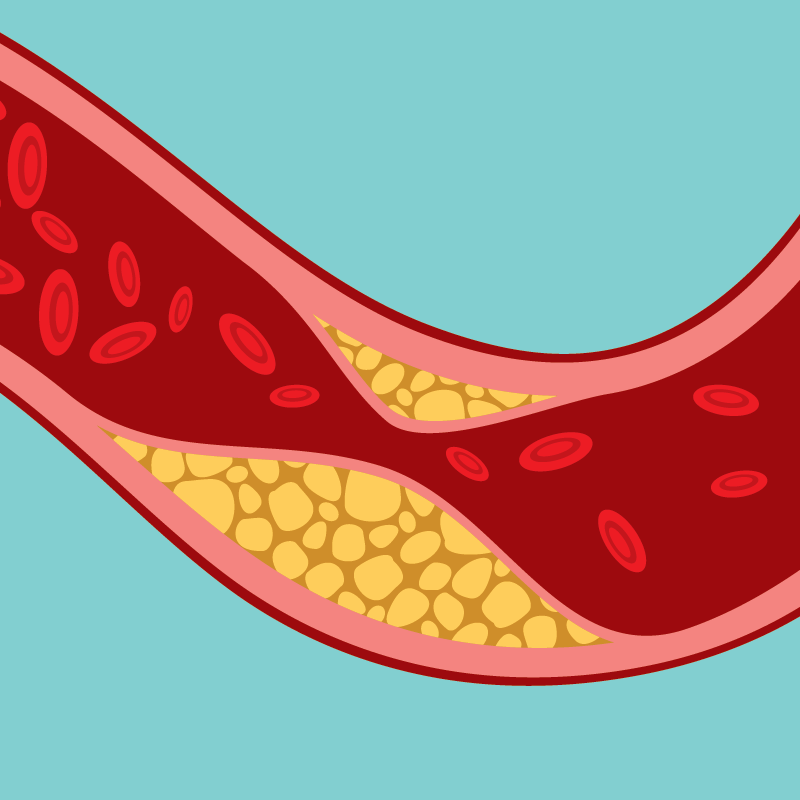conditions
High Cholesterol
High cholesterol can cause fatty deposits to build up in your arteries, increasing the risk of heart attack and stroke.

Your body needs cholesterol to build healthy cells, but too much cholesterol can be dangerous. When your blood contains too much cholesterol, this fatty substance sticks to the walls of your arteries, where it gradually hardens into plaque. The buildup of plaque in your arteries makes them narrower and less flexible, reducing the flow of blood.
Inadequate blood flow to vital organs can lead to a variety of serious health conditions. And as the cholesterol in your blood continues to build upon the walls of your arteries, the reduced flow of blood to your heart and brain increases the likelihood of a life-threatening heart attack or stroke.
One of the most concerning aspects of high cholesterol is that in most cases, people don’t experience any symptoms that would indicate a problem. That’s why it’s so important to have your cholesterol level checked regularly.
Cholesterol occurs naturally in your body. It’s produced by the liver and carried through the bloodstream by structures called lipoproteins, specifically LDL (low-density lipoprotein) and HDL (high-density lipoprotein). Both of these cholesterol-carrying structures are necessary for good health, but LDL is often called “bad” cholesterol because it carries fatty deposits and contributes to the hardening and narrowing of the arteries. HDL is also known as “good” cholesterol because it helps break down plaque in the arteries by absorbing excess LDL and carrying it back to your liver, where the “bad” cholesterol is then broken down and eliminated.
Eating too many fatty foods may or may not cause you to develop high cholesterol. (Research now suggests that the effect of diet on blood cholesterol levels isn’t the same for everybody.) Other lifestyle factors, such as stress, poor-quality sleep, and being sedentary can also affect your blood cholesterol. Certain medical conditions, such as thyroid disease, may also affect cholesterol levels, as can some medications.
Genetic factors also seem to be involved in determining how much HDL and LDL a person has. Advanced lipid testing can determine whether you have a genetic predisposition that puts you at greater risk of developing plaque in your arteries.
Although most cases of high cholesterol can be treated with medication, nutritional and other lifestyle adjustments may also help reduce cholesterol. At Manhattan Cardiovascular Associates, we always incorporate lifestyle factors into our treatment plans because maintaining a healthy lifestyle can go a long way toward protecting your long-term cardiovascular health.
After considering your age, diagnostic test results, and any additional conditions or risk factors, we may also recommend medication to manage your cholesterol. Our goal is to create an individualized plan that’s right for you.

